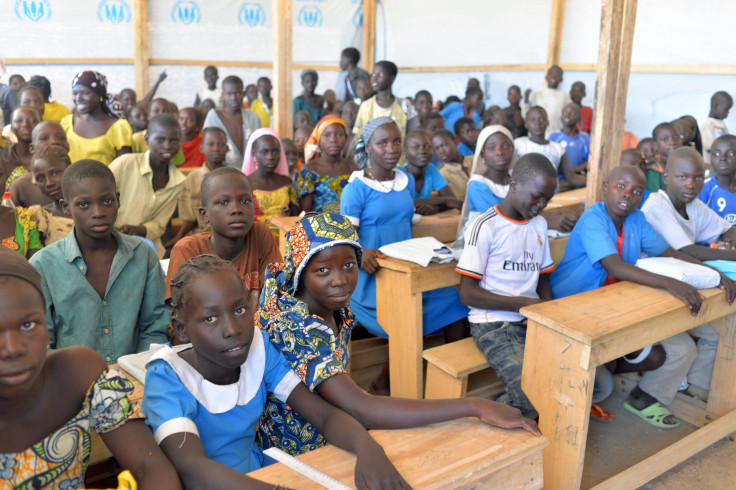Boko Haram Violence In Nigeria Forces More Than 1 Million Children From School: UN

Violent attacks perpetrated by Boko Haram in Northeastern Africa has forced out over 1 million children out of school, the United Nations Children’s Fund, Unicef, said in a report issued Monday. The militant group, which aims to establish an ISIS-style government in Nigeria, has killed thousands of people since launching a brutal insurgency in the country six years ago.
Boko Haram's actions have forced the closure of over 2,000 schools across Nigeria, Cameroon, Chad and Niger, according to the report, which noted that some of the schools have been shut for more than a year due to the conflict. The schools have been attacked, looted and at times set on fire by Boko Haram militants who pledge allegiance to ISIS.
“It’s a staggering number,” Manuel Fontaine, Unicef’s West and Central Africa regional director said, in the report. “The conflict has been a huge blow for education in the region, and violence has kept many children out of the classroom for more than a year, putting them at risk of dropping out of school altogether.”
Boko Haram, which literally means Western-style education is sin, is mostly based in northeastern Nigeria but has of late spread its campaign by launching attacks in neighboring Cameroon, Chad and Niger, with an aim to establish an Islamic caliphate. The number of children missing out on schooling due to the ongoing conflict adds to the estimated 11 million children who were already out of school in Nigeria, Cameroon, Chad and Niger before the onset of the crisis, according to the report.
However, since October, more than 400 schools have reopened in Nigeria's Borno state, where education was halted in the wake of an attack on a school in neighboring Yobe state that killed 59 students in 2013.
“The challenge we face is to keep children safe without interrupting their schooling,” Fontaine said. “Schools have been targets of attack, so children are scared to go back to the classroom; yet the longer they stay out of school, the greater the risks of being abused, abducted and recruited by armed groups.”
Unicef has set up temporary learning spaces to reach 67,000 kids and provided learning materials to 132,000 others uprooted by conflict. According to the report, the organization has so far received 44 percent of the funding required in 2015 to respond to the needs of children in Niger, Nigeria, Cameroon and Chad. However, in 2016, Unicef said it needs nearly $23 million to provide education for children affected by conflicts in the four countries.
Last month, a report from the Institute of Economics & Peace estimated that Boko Haram has killed more people in 2014 than the Islamic State group, also known as ISIS. Last year, the deaths attributed to Boko Haram alone increased by more than 300 percent, the report said, according to the New York Times.
© Copyright IBTimes 2024. All rights reserved.





















